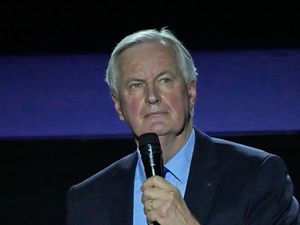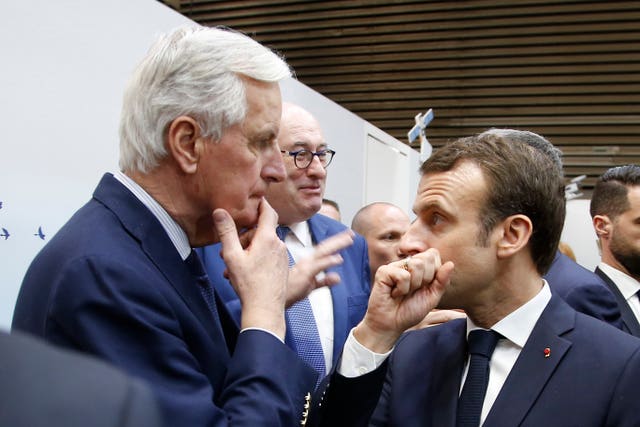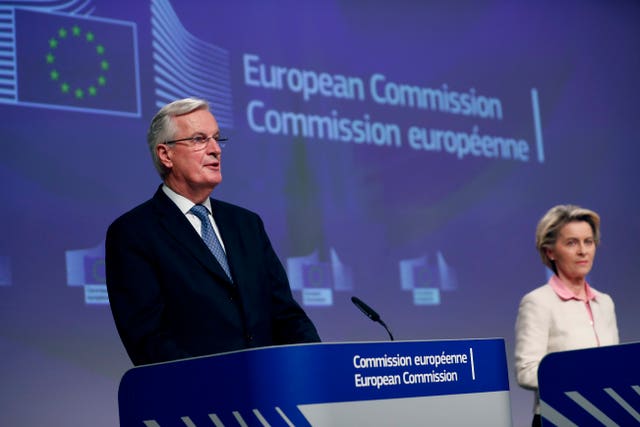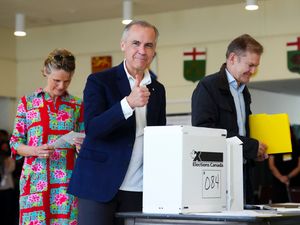Former Brexit negotiator Michel Barnier named as France’s new prime minister
The announcement from French President Emmanuel Macron came on Thursday after more than 50 days of caretaker government.

President Emmanuel Macron has named EU former Brexit negotiator Michel Barnier as France’s new prime minister.
The announcement came on Thursday after more than 50 days of caretaker government.
The appointment of the 73-year-old Barnier follows weeks of intense efforts by Macron and his aides to find a candidate who might be able to build loose groupings of backers in parliament and survive possible attempts by Mr Macron’s opponents to quickly topple the new government that Mr Barnier will now put together and lead.

A statement from Mr Macron’s office announcing Mr Barnier’s appointment said he had been tasked “with forming a unifying government to serve the country and the French people”.
The statement added: “This appointment comes after an unprecedented cycle of consultations during which, in accordance with his constitutional duty, the President ensured that the prime minister and the future government would meet the conditions to be as stable as possible and give themselves the chances of uniting as broadly as possible.”
Mr Barnier, a career politician proud of his humble roots in France’s Alpine region of Haute-Savoie, is no stranger to complex and difficult tasks.
He was the European Union’s chief negotiator in the difficult talks with the UK over its Brexit departure from the bloc.
He will replace Gabriel Attal, who resigned on July 16 following quick-fire legislative elections that produced a divided and hung parliament, plunging France into political turmoil.
But Mr Macron kept Mr Attal and his ministers on in a caretaker capacity, handling day-to-day affairs, so political instability wouldn’t overshadow the July 26-August 11 Paris Olympics, when France was in the global spotlight.

In political career over more than 50 years, Mr Barnier has served as French foreign, European affairs, environment and agriculture minister — and twice as a European commissioner — but until now had never had a tilt at any leadership post, like that of president or prime minister.
Influential far-left leader Jean-Luc Melenchon immediately came out against Mr Barnier’s appointment and predicted the new prime minister would not get a majority backing in the bitterly divided National Assembly.
Mr Melenchon said the appointment flew in the face of the July 7 legislative election results that left parliament’s lower house split between three main blocs — the left, including Mr Melenchon’s party; the centre where Mr Macron has based his support, and the far right, converging around anti-immigration leader Marine Le Pen.
“The election has been stolen,” Mr Melenchon said.
Ms Le Pen, on the other hand, indicated that she is willing to give Mr Barnier a chance but said her National Rally party will not take part in his government because the new prime minister “does not share our ideas”.
She says the 2025 budget will be a priority for Mr Barnier’s government – it faces a tight deadline to deliver one.
France is also under pressure from the EU to get its finances in order, with Brussels having rebuked Paris for running up excessive debt.
“Barnier is a man respectful of other political forces,” Ms Le Pen said.
“It’s important because compromises will have to be reached, considering the state of France’s budget.”





